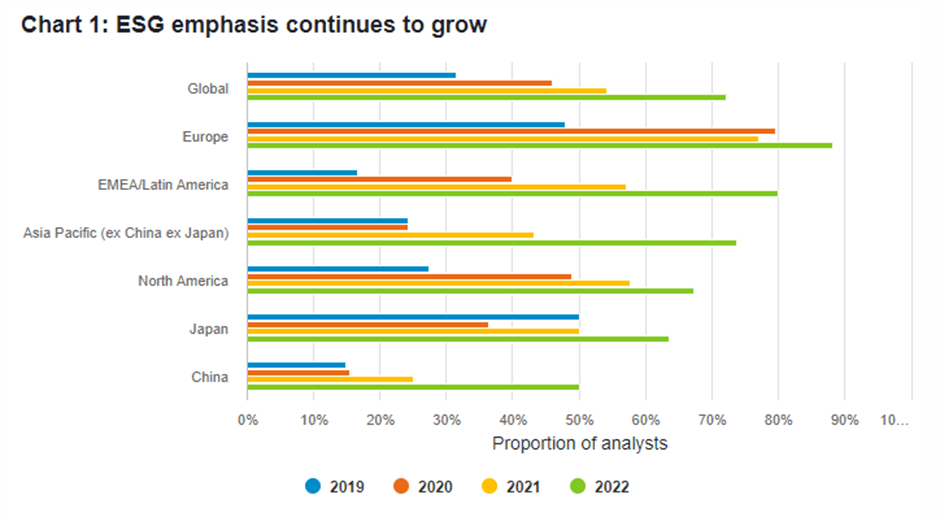The Ethical Investor: Apostle’s new zero-tolerance fund, and how to spot an authentic ESG fundie
News
News
The Ethical Investor is Stockhead’s weekly look at ESG moves on the ASX. This week’s special guests are eInvest MD Camilla Love, and Apostle Fund’s Fiona Manning.
The Cambridge dictionary defines ‘authenticity’ as the quality of being real or true.
In the real world, authenticity arguably has a greater meaning. For psychologists, authenticity refers to the alignment of ‘word and deed’, of ‘values and belief’, and to act in unison with your true self.
Nobody is perfect but Camilla Love, managing director at eInvest, is giving Stockhead readers five ways to spot whether your ESG fund manager is truly authentic.
Engagement
According to Love, engagement is a factor that truly shows the importance of active management in ESG based investing.
Is your investment manager engaging with the companies it invests in to better their corporate outcomes?
“For example, are they engaging in greater board diversity, stronger reporting, auditing their Modern Slavery outcomes, or pushing for greater transparency in greenhouse gas (GHG) emission reporting?” Love explained to Stockhead.
“And is that dialogue not only outbound, but also inbound?” she said.
Love added that an authentic ESG investment manager must meet with and provide guidance to companies looking to improve their sustainability credentials, even when there is no capital invested.
Transparency
Love says authentic ESG managers should have transparency at the heart of what they do.
This includes transparency over the manager’s own voting outcomes, full portfolio disclosure and regular engagement reporting.
“Transparency enables you as an investor to ask the right questions, understand in more granularity the motivations and decision making, and also the trade-offs made by your investment manager,” Love said.
“Transparency also allows you to keep your investment manager accountable through measuring and monitoring outcomes.”
Corporate activities
Love believes that an authentic investment manager should be looking inwardly as well as outwardly when it comes to sustainability.
For example, are they walking the talk through initiatives such as offsetting their own GHG footprint, voluntarily reporting to the Modern Slavery Act or Workplace Gender Equality Authority (WGEA)?
Are they also reporting their recycling, going paperless, or incorporating water and energy ratings as part of their leasing requirements?
“If the answer is yes – great! If the answer is no or I don’t know, then ask for more detail and question why not,” Love said.
“Uncovering the activities of the manager itself is a leading indicator on the true authenticity of its ESG credentials,” she added.
Leader in collaborations
Authentic ESG managers are always collaborating to drive change, according to Love.
This may include joining industry-wide action groups on modern slavery, climate, and fossil fuel reduction.
“Sometimes managers join these groups to tick a box, however, managers who drive and lead change in these groups can be the ones to watch,” she said.
“Not all managers can lead every collaborative group, but by leading from the front and driving change in a collaborative process for a wider impact, it can be a telling indication of true ESG authenticity.”
Looking under the hood
By peeking under the hood and seeking out what the investment manager is invested in, a picture can tell a thousand words, says Love.
“Revenue thresholds for portfolio inclusion is a telling one.
“Whilst I am the first to agree that it can be difficult to rule everything out, your investment manager should be able to pick up the phone with the companies they invest in.
“They should be able to ask those companies – do you gain any revenue logging old growth forests, manufacturing, distributing, or selling of tobacco or alcohol products or weapons, extracting coal, oil or gas, etc,” she said.
Love says that having revenue thresholds means that managers could hold stocks that investors may not associate with sustainability.
“So, it is well worth looking at the portfolios and seeing what’s in there, and asking is this authentically ESG?”

Aussie fundie Apostle Fund Management has just launched an ESG fund that takes a zero-tolerance approach when it comes to its investment criteria.
The new People and Planet Fund has a hard-line exclusion criteria that includes a 0% direct revenue exposure to industries such as fossil fuel, nuclear, weapons production, gambling, alcohol, and pornography.
Stockhead caught up with the fund’s portfolio manager, Fiona Manning, to have her explain more about this investment approach.

How do you prove to clients that you’re an authentic ESG manager?
“You need to go for total transparency around what you’re holding, what screens you’re applying, and how you’re choosing your stocks,” Manning told Stockhead.
“Because no two funds, either in the ESG space or otherwise, are managed the same.
“So you need to be clear about what your process is, and draw the line in the sand in terms of transparency.
“At the moment, Australia doesn’t have the sort of a framework in place like they have in the EU, where there’s more discrete categories of ESG-ness.
“So for now, it’s up to the product providers to be transparent with how they run it, and how they should be held accountable.”
Explain what you mean by zero-tolerance investing
“The People and Planet Fund is focusing on two things. On the people side it’s about gender equality and health, and on the planet side we invest in climate action and clean energy,” Manning explained.
“We have negative screens in place, in other words we exclude alcohol, tobacco, fossil fuels, etc.
“But the main differentiator in our fund is that we believe we’re more stringent on our screens than other funds.
“Other funds might exclude a company that derives 5% or more of revenue from a particular activity, whereas we think that value-based investors want absolutely zero exposure to these contentious activities.”
Are you compromising returns for investors by doing that?
“You could actually argue the converse with the positive side,” Manning said.
“If you’re not tilting towards these areas that are going to be positively impacted by undeniable mega trends, you could be disadvantaging your investors that way.
“Obviously, when you’ve got exclusions in place, you’re going to be shrinking your investable universe. But whether that necessarily leads to worse outcomes, I don’t think there’s a hard line on that.
“In fact, there’s enough research out there that shows consideration for ESG and sustainable issues can actually enhance the risk return profile.”
Tell us about some of the current stocks in the fund
“Within Australian equities, we target the ASX 300 companies,” said Manning.
“So there’s obviously a lot of familiar names there like CSL and Cochlear. We also like Imugene and Bank of Queensland, which has a really good gender and carbon emissions performance.
“We also invest in Brambles and Blackmores, as they have a pretty good gender representation in upper management.
“Within venture capital, we’re getting exposure to the Artesian Female Leaders VC Fund, which was specifically created to fund female led enterprises.
“So it’s pretty diverse portfolio.”
As reported by Stockhead’s green expert, Jessica Cummins:
As part of the Federal Government’s Climate Active standard, Leigh Creek has been awarded Climate Active certification for its business operations.
Climate Active certifies businesses that have achieved net zero carbon emissions, and the certification process has vetted Leigh Creek Energy’s carbon neutral claim through independent experts to ensure it meets the requirements of the Climate Active Carbon Neutral Standard for Organisations.
Sovereign’s latest life cycle assessment study (LCA) at the Kasiya Rutile Project in Malawi has confirmed the company’s natural rutile product is expected to have “substantially lower global warming potential” (GWP).
Using natural rutile from Kasiya as titanium feedstock for the chloride pigment process could hold the solution to developing low-carbon footprint products, including low carbon paints, SVM said in a market announcement this week.
The views, information, or opinions expressed in the interview in this article are solely those of the interviewee and do not represent the views of Stockhead.
Stockhead has not provided, endorsed or otherwise assumed responsibility for any financial product advice contained in this article.